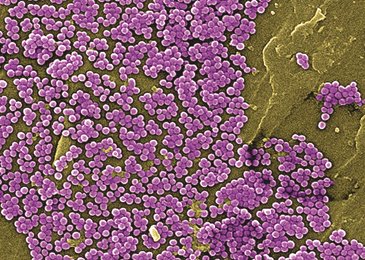Vitas Pharma focuses on tackling MRSA infections
February 19, 2013 | Tuesday | Features | By Rahul Koul Koul
Vitas Pharma focuses on tackling MRSA infections
Methicillin-resistant Staphylococcus aureus (MRSA), a type of staphylococcus bacteria that is resistant to many antibiotics, accounts for 30-50 percent of isolates in hospitals in India and worldwide. They cause infections in the skin and lungs that tend to be resistant to multiple classes of antibiotics, leading to higher morbidity, mortality and economic burden. In fact, MRSA isolates are resistant even to the last line of defense-vancomycin and linezolid, which has now been reported worldwide to be a severely limiting treatment option for patients. To address the issue of multidrug resistant MRSA infections, Hyderabad-based Vitas Pharma initiated a project in 2011, which was funded by the biotechnology industry partnership program (BIPP) of the department of biotechnology (DBT). So far, the R&D team has identified a novel scaffold with potent activity against the drug resistant S.aureus, both invitro and invivo.
Their patented lead series is orally bioavailable with pharmacokinetic features suitable for intravenous/oral switchability. As their compound targets a novel mechanism, clinical candidates emerging from this work will be able to overcome the existing resistance. The company is now optimizing the lead series and in the process of establishing preclinical safety.
Talking about the importance of partnering with the DBT, Dr Radha Rangarajan, CEO, Vitas Pharma says, "The funding is important to us for three reasons: First, it allows us to complete a key phase of the preclinical development of the lead and backup candidates, enabling us to progress towards clinical studies faster. Second, the review process leading to approval by the DBT has validated our thinking on the science and the clinical need. Third, we anticipate that, having this grant will help us with future funding for the regulatory toxicity and clinical studies."
Compounds emerging from this research will be taken through regulatory toxicity studies and then tested in human clinical trials for safety, tolerability and efficacy. If found efficacious and safe, it will lead to the development of a new class of drugs with the potential to achieve peak sales of $100-200 million worldwide. While there are risks of failure, particularly when targeting a novel mechanism, these risks have to be mitigated through prudent planning, strong project management and robust decision making processes. Ultimately, the work is relevant for improving health outcomes for the nation in the fight against infectious diseases.
The business model of Vitas is to develop the molecule to the proof-of-concept stage, before out licensing to a suitable pharmaceutical company. To enable this, partnerships for clinical development, according to the management, will be sought based on emerging safety data in the preclinical studies.
Praising public-private partnerships, Dr Rangarajan adds, "It is one of the most important mechanisms for enabling innovation in India. It is also one of the many ways by which healthcare issues specific to India can be addressed. In the long term, substantial support from the government for research based enterprises will put India on the forefront of science internationally and bring innovative medicines to the Indian market at lower cost."










